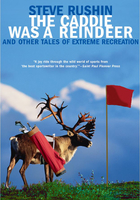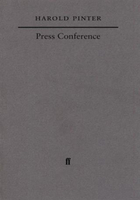An Alarm of the Plague
Our stilling-room maid Trunco had at that time been engaged with us for four years, since the infancy of George, my youngest brother: for then, my mother suddenly finding no more milk for him, from a sickness that came upon her, my father was hard put to it to seek out a lusty young wet-nurse for the child. Having business that day at Banbury Hiring Fair, which is called The Mop, he rode thither very early in the morning, his old coach following behind. At The Mop those labourers who have a mind to change their masters stand in their several companies, as woodmen with their axes, carters with their whips, ditchers with their spades, serving-maids with their mops (from which the Fair has its name) and sell themselves to the best master they can, at the highest price. My father had that year taken over, from the Bishop of Oxford, the long lease of certain coppices in Stow Wood and the Royal Forest of Shotover, which has its name by corruption from the French Chateau Vert, or Green Castle, and lies between Forest Hill and Oxford. He stood in need of a handy woodmen or two that could clear away underwood, and saw up fallen trees for carting, and mend broken fences; for the coppices were spoiled by long neglect. Since this lease yielded my father no rights over the large standing timber, but only over fallen trees and the young growing wood, a woodman past the prime of life would suit his purpose and pocket better than a young sturdy one.
Two such lean old wretches whom he had found at The Mop, he plied well with ale and brought home with him stretched along the floor of his old coach. It was there also that he found my dear Trunco standing disconsolate, a little apart from the rest, her babe in her arms. Her husband, a brewer of Abingdon, was lately dead of the plague, which had raged fearfully that year in his town. When his debts were paid, there was nothing left for Trunco's support; and being thus cast back upon the parish of her birth, and having no great skill either with the mop or with the needle, she was sent by the parish officers to the Fair to hire herself as a wet-nurse to some rich family, for she had milk enough for two babes. My father, judging her to be a healthy, honest woman, immediately engaged her and packed her in the coach with the old men; item, a turkey-cock with two hens, item, a spotted pig, item, a dozen of young ducks which he had bought. I remember how he came stamping into the house very late that night, a little drunken, hillooing and swearing he had sprung a rare variety of game at The Mop, from ducks and turkey-birds to young nymphs and old satyrs.
Trunco's child died not long afterwards, of a cough. To me she was thereafter more devoted than to any other soul, even to her foster-child George; for when one day a fellow-servant accused her to my mother of the theft of some trifling braid or ribbon, and my mother was for whipping Trunco well, I interceded for her. I undertook to be a surety for her good behaviour and declared that for certain she was no thief; whereas Agnes (the maid who had accused her) was by no means above suspicion. Trunco's innocence came to light before long and she was rewarded with a position of greater trust, being appointed our stilling-room maid. Then her wages were raised to £3 per annum, for she proved to have a pretty art in distilling simple waters of wild herbs and garden flowers—as also the Snail-water, the Bezoartis, the Hiera Picra, the Mithridate for melancholy, the Aqua Mirabilis, and such-like curious medicinal waters, of which she knew the virtues as well as did any apothecary. She was, besides, given charge of the pewter and the silver, to see that it was kept bright and no piece lost or nimmed. To Trunco I opened my heart freely enough, for I could trust her beyond any of my own family, my brother James alone excepted.
It was Trunco who wakened me, on the day after my birthday, and told me that it was high time to be stirring, for this was a working day and Zara was already risen; and that my mother had missed my face at breakfast and looked vexed. Trunco waited awhile for me to speak to her, and when I said nothing, she began to pump me. She asked me: "Well, my fine lady, and did no gentleman yesterday offer you his heart smoking on a pewter dish? Nor did none even ask leave to speak a few words to his Worship, your father?"
I answered faintly: "One only put the matter to the touch, dear Trunco, and he not the right one, neither. You had promised me four at the least."
"Who then may the right one be, my young lady?" Trunco was saucy enough to ask me.
"I have an headache, Trunco," I answered her. "Do not torment me, pray. My head goes round and round."
She asked my pardon, and went out and fetched me a red-currant cordial which warmed my stomach, and some white bread, with curds in a bowl, which strengthened me a little. I put on my woollen working gown and my worser shoes and came slowly down the stairs. The house had already been swept and set somewhat to rights, and of the three drunken gentlemen on the couch but one remained, who was sitting upright; he looked foolish enough, being dressed like Hercules in flesh-coloured hose and close-fitting jerkin, with a lion's skin fastened around his neck with a brass button. A cart with hurdles laid upon it came rolling into the yard. As I saw through the window, it was no longer decorated with Christmas greenery, except for a little bush of holly, tied to one wheel, which had been forgotten.
"So Marie Mischief, you are come downstairs at last!" my mother bawled at me from the pantry. "I have needed ten hands all this morning, yet have but two. Go at once into the fowl-house and see whether the young chickens and the larger poultry be not starved to death. They are for our eating in a week's time, and if they are not sufficiently fat by then, you know well, my jolly daughter, whose sides will be thumped."
I went out into the yard, where my father, with his back turned to me, stood gazing at the wreck of the thatched shed. He was saying to his bailiff: "It will not serve again for a shed, I fear. Have this old thatch laid aside; it shall be spread as dressing on the piece of ground, below the orchard, where the geese now are pastured."
My head ached so, I did not greet my father, but passed by in silence.
In the fowl-house we had coops, made with divisions, each fowl apart from its neighbour, and not room to turn in, but with means to cleanse their droppings from behind; and for each fowl was set a porringer for food and a pottle for drink. The food I gave them was barley, boiled tender, some days in water, some days in milk, and some days in ale, for variety; but always I mixed it in the porringer with a little brown sugar. In the pottles I poured strong ale by day, so that the fowls were very drunk and stirred not much, for much stirring makes fowls lose flesh, and by night they had fresh water, and a candle burned all night above the coops to keep them from sleep. Then they would drink much because of the thirst that the ale gave them, and eat much because of the hunger that the water gave them. With this course they grew prodigious fat in a fortnight. As for the chickens, of whom I kept six in each coop, they had another diet, which was rice boiled in milk so thick that almost a spoon might stand on end in it, and sweetened with kitchen sugar at sixpence a pound. I would put this before them every day for a fortnight, mixing with the rice a little bran to keep their maws clean; so that their flesh should be white and of a pure taste. Then for five days more I would give them dried raisins, pounded in a mortar, and then mixed with milk and the grated crumbs of stale white bread. They profited at night from the same candle that burned for the fowls, and delight of the raisins made them eat continually. When they came to their height of fat, they were then eaten, for if they lived longer they would lose appetite and fall off; but at the height of their fat they were exceeding good to eat, especially in a fricassee, fried first in butter, with white wine, savoury herbs and endives. It was now the second day of their diet of raisins and they were about the bigness of a blackbird, yet so fat that they could no longer stand, but grovelled upon their bellies to eat.
When I came to the fowl-house, I found the candle already blown out; and the barley and ale duly set before the fowls, that were eating greedily; and the raisin mess set before the young chickens. This was Trunco's work, and I must thank her for her kindness. I returned to the house, going in by the door of the pantry, where I hoped to find Trunco; but she was not there, and I went to seek her in the kitchen.
There was a stench of stock-fish frying at the fire, and of garlic being bruised, and as I came in at the door I began to feel as giddy as a spinning-top and tottered upon my legs. Then I sneezed twice, and the cook-wenches held up their hands and all cried together: "The Lord preserve you, my young Mistress!" At that I vomited up the red-currant cordial, the bread and the curds, and O, then, what a scurry in the kitchen! A little cook-wench whipped past me and out into the yard; the greasy cook dropped upon his knees and began a long litany of prayers; and I stood there feeling silly until, turning to go, I fell down along the floor.
Now, the plague, that had been so severe in this country in the year before I was born, by which above 30,000 people died in London alone, had returned four years before this and destroyed ninety persons in Abingdon, which lies not many miles from us to the southward. Oxford, with the places thereabouts, is salubrious and has always felt the rage of the plague less than other cities, but we stood not the less in terror of it. This year it was again in London; and two brothers of my mother, Archdales of Wheatley, had spent Christmas Day with us, coming from Moorgate, a parish of London said to be infected; of whom one, my uncle Cyprian, had fallen sick and cut short his visit, being taken back in his coach to his place at Wheatley that he might not be a burden to us over the holidays. Imagine, then, what noise and confusion ensued in the household, when I sneezed and fell down fainting along the floor, and when it was recalled by the cook that, on the morning before, I had come to him for a lump of dried figs to plaster a swelling beneath my arm. It was thought evident, as evident as the teeth of a cur when he curls his lip, that I had taken the plague.
Zara with my young brothers and my little sisters Ann and Bess ran out of the house, to peep in at the kitchen window and gaze on me as I lay there. My father stood in the doorway, perplexed, and crossed himself in amazement, like a Papist, making sometimes to come forward and take me up from the floor, but as often making better thought of it and shrinking back again.
My mother, as it happened, was no longer within doors, and they could not find her. She had run half a mile down the road, after a carter, shouting and swearing that he had not delivered the full measure of flour certified in the bill he brought from Tomlins of the Mill. My Aunt Moulton was ridden to Oxford, my elder brothers were out coursing with their greyhounds towards Elsfield and, besides my father, nobody with any more head than a pin remained in the house, but only Trunco. When they told Trunco: "The eldest young lady is tumbled down with the plague in the kitchen and lies there senseless," she stood not still for a moment of time, but ran immediately and came in and threw me upon her shoulder and carried me to my bed, the servants and others fleeing away before her, like poor villagers before a troop of dragoons at pillage.
Now there was love for you! Yet I cannot have it thought that I would write anything against my own father, for indeed his was a very difficult case. Since upon his continued fife and health depended the fortunes of ten others of his children, beside myself, he was unable to justify the first motion of his mind, which was to risk the contagion and take me up in his arms. For my part, I think that it stands more to his credit as a father that he refrained and left me lying there, rather than that, by over-fondness for me, he should have risked to infect himself and so bring ruin on the whole house.
I knew nothing of all this until afterwards; nor of the grand suffumigation of the house with sulphur, which my mother put into motion when she came in again; nor of the hasty messages of warning that were sent out to our Twelfth-night guests; nor of the marshalling of our whole household to be doctored with the plague-water, of which Trunco had distilled a gallon or two the year before, concocting it for the most part of simples which she had set the children to gather in the fields.[2]
After the hue and cry was raised, that evening the parish officers came with a physician to certify my case. But Trunco had by now pulled off my clothes and made an examination of my body, before she put my warm night-gear on me; and she had something to say to the physician when he came into my chamber (though most unwillingly), smelling a lemon against the contagion and keeping close to the door. "Sir," says she, "my poor husband died of the plague four years ago, and his sister too, and I nursed them to the end and buried them both and I have no fear of the plague; for the Lord, I believe, has made me proof against it. I know the signs and marks of the plague, I dare swear, as well as any physician in England; and if you accuse my poor lamb of being stricken of the plague, that is very false. True, your Honour, she has sneezed and vomited and lies here in high fever, and true, she has a little swelling and a redness under her right arm-pit, where the bubo or carbuncle or what-d'ye-call-it usually appears. But my meaning is: seeing that the swelling rose when she was otherwise in perfect health, for she dressed it with a fig-poultice yesterday morning, after she had ate a hearty breakfast of veal collops and three eggs, why, I judge it to be no true plague-carbuncle, but an imposture of an altogether other nature. I believe, your Honour, that this sickness is no more than a fever that she caught last night, lolling or loitering in a cold place after she had over-heated her body in the dance. As for the redness, it proceeds doubtless from the fig-poultice clapped on when it was scalding hot; moreover, as I can show your Honour, the swelling is seated lower and more forward on the ribs than is usual with the plague."
The physician, grown a little bolder, came nearer, and pulled up my shift, and he tried the swelling with a lancet from his bag. He probed about awhile and presently lifted out a little splinter of thorn-wood, which was the apparent cause of the swelling and perhaps also the cause of the fever. This I had got a few days before when, in a chase with my brothers, I had leaped my horse over a bank where a thorn-tree grew; three or four thorns had pricked through my gown under the arm, as I threw up my whip-hand to cover my face.
The physician now had pleasant news to take out with him to my mother, who waited on the stairs, in a distraction, swinging a pot of stinking sulphur. Yet when she heard it, and he showed her the thorn-splinter resting on the point of his lancet, she flew into a passion and cast the sulphur-pot through the window and blessed me backwards, and cried that her good hangings and clothes were spoiled and well-nigh ruined by the grand suffumigation she had given them. Moreover, some of the servants had run off for fear, and were five parishes distant by this time, and what was worse, the cook lay in a fit, with a light froth at his lips, who was a very master of his trade especially for pies and hotch-pots. And what servant or tenant remained to send after the several messengers who had ridden off with warnings of the plague to the gentlemen's houses? And how many of the said messengers would venture to return?
However, by the week's end, all was again smooth and peaceable at the Manor, and I had so far recovered from my sickness that I could sit upright in my bed with cushions set behind me, and take gruel with little sops of bread.
Trunco nursed me all this while and would let none come near me, except once a day my mother, and would not permit even her to stay long, or to chide me for the trouble I had brought on the house. Says Trunco: "Madam, when your daughter was thought to have the plague, all the household fled from her, but only your woman Trunco; who now, by your kind permission, claims a natural right to nurse her through this sickness, with caution and advice from none."
My mother huffed and snuffed at this plain speaking, but she granted Trunco's plea, on condition that she cured me speedily; which Trunco undertook to do before the month was out. Being armed with this authority, Trunco also resisted the physician when he would have bled me of a pint and a half of blood. She contended that in January, when the forces of the body are weak and Nature hoards her sap, it would be murder to take so much as a thimble-full from me; and she cast at him such a tigress look that he was wise and altered his intentions. She also drove away the curate, the Reverend John Fulker, who would have prayed over me. "Go off," says she, "little Reverend Sir, and pray instead with Molly Wilmot, who I think will presently have need of your best prayers and sermons too." This Molly Wilmot was a tenant's daughter, an airy flirtish piece, and it was commonly said, though perhaps with more malice than truth, that the curate knew her body in a larger manner than he knew that of his own wife. The Reverend Fulker turned red, looked foolish, and left us in peace again. It was my father who paid the curate his £20 yearly; for the rectory went with the Manor.
Trunco treated me marvellous kind, and continued at my side night and day, stroking my head, turning my pillow, laying hot bricks wrapped in woollens to warm my feet if they were cold, and commanding jellies and other delicacies from the kitchen, whatever she thought would tempt my palate. If my little brothers were noisy on the stairs, or in their study (which lay next door), she would fly at them with her fists, and after a while they became exceedingly careful not to offend her. Thus, when my fever had abated, I passed there some of the pleasantest days of my life, and grew plump and merry.
I asked Trunco whether I had spoken wildly in my delirium—was I frantic, had I said what I should never have said, had I disclosed what modesty ought to have concealed?
"O no, my dear," says Trunco, "you were at all hours sweet discretion itself!"
"I mentioned no gentleman's name, did I, my Trunco," I asked, "not in any way that seemed strange to you? I spoke no foul, ugly nonsense?"
"There was nobody here, in any case, to listen but myself," she says, "and what I heard I have forgot. But I swear to you, my little mistress, that so far from my hearing any ugly, frantic nonsense from your lips, it was the prettiest deliration that ever I listened to. Indeed, your ravings were more delightful than many other women's rational conversation. Nay, nay, I have altogether forgotten their purport, except only that you came back always to talk of sweet primroses and violets."
This was Trunco to the life, for certain I am that I spoke a thousand foolish things about a certain gentleman whom I have here not yet named.
***
Well, in my vellum-book I wrote of him as "M," but here I need give him no enigmatic alias, but may write his name in full. "M" stood for "Mun," which was short for Edmund, and Verney was his family; he was third son to Sir Edmund Verney, of Claydon in the County of Buckinghamshire, the King's Knight-Marshal and Standard-Bearer. Some years before this, when he was an undergraduate at Magdalen Hall in Oxford, he had two or three times come to our house at the invite of my brother Richard, with whom he would go coursing. Now it may seem absurd and almost against nature that I, a child of but eleven years old, should have fixed my affections so steadily on a man near ten years older than myself; but so it was, and if it were a fault, yet time mended it.
Mun had the name of a wild young fellow, a naughty scapegrace, at the University. His tutor at Magdalen Hall was Mr. Henry Wilkinson, a Puritan and a fiery preacher, brother to Dr. Wilkinson, President of Magdalen College, and Mun and he did not fadge well together. Mun told my brother once: "Dick, my friend, I am all for God and the Church, no man more so, but long unnecessary prayers weary me; and my mind falling asleep, the Devil enters in by the back door." To circumvent the Devil, Mun would stay away from prayers at the Hall whenever he expected that his presence would not be remarked, and go out to drink and play skittles at the Greyhound Inn. After a term or two, he also grew weary of his studies, which seemed to tend no-whither: the logical problems, sophisms, and disputations, the catechisings, the metaphysical declamations, and such other exercises as he was expected to attend in the College, were unfit, he said, for any man of spirit. He abhorred even to read Aristotle, and absented himself from the lectures of the President of the College, spending his time instead in the company of jolly drunken young noblemen of his acquaintance at the tavern, or at the public bowling green, or at the Dancing and Vaulting School of Will Stokes. To hold their esteem, he must dress and be mounted as well as they were, and game with cards and with dice for stakes as high as theirs, and lay wagers for as great sums; and this though his father, the Knight Marshal, having many other children to provide for, could allow him but £40 a year for his keep.
Mun's course of living drew him into great debts, as may be imagined, which he at last despaired of paying and confessed all to his father; who rode down to Oxford to take him away and settle his affairs for him. Sir Edmund was, I believe, more than commonly grieved, for he had a particular affection and partiality for Mun. Mun, alas, had fooled him into believing that he liked both his devout tutor and his difficult studies; and that he was going very attentively about his College exercises; and that when he had kept the necessary terms he would easily attain his Mastership of Arts, with high compliments both from the Principal of the Hall and the President of the College.
Yet I would say this in Mun's defence, that he had fallen insensibly into this foolish course, and that the Doctors themselves were much to blame for not having sooner fetched him out of it. Mun was always in hopes that by a lucky wager or suchlike accident he could haul himself out of the mire, and that his father would never discover that he had so much as soiled his boots with it. He rode in horse-matches and wagered high on victory and sometimes won a good sum; but sometimes lost as much or more again. When at last he was stuck thigh-deep, he would rather have died, I believe, than humble himself by begging relief from his noble friends; however, I think he did worse, not knowing where to turn—for he borrowed money from tapsters and College servants and other mean persons who could ill afford to lose even small sums. For myself, I never saw Mun at any disadvantage, for he counted no man a worthy gentleman who, how deeply soever he had drunken, did not show himself as wholly polite and attentive to gentlewomen as if he were stark sober.
I first made Mun's acquaintance on an afternoon in March of the year 1637. He was invited to dine with us on the Wednesday, but had mistaken the day, and as it happened all the men of the house were away, hunting with the Tyrrells, and my mother was too busy in the cheese-press to entertain him. The bailiffs wife, who managed the dairy, had that day miscarried, a month before her account, and nobody but she and my mother understood the art of making little slip-coat cheeses—of which that day from the milk of ten cows my mother made 12 lbs. weight, laying them to ripen in flat boxes of wood.
My mother excused herself to Mun, but when he would have ridden away, she would not suffer it; for that would have been to put an affront upon his family, which she held in esteem. So she says: "Mr. Verney, here is my daughter Marie who, by your leave, will play hostess until I am at greater leisure. Now, as you see, I am wet to my elbows with whey, and the cheese-vats are not yet filled. Marie will show you the library, if you will, and the stables; and you may take tobacco in the hall—but not, I pray, in the parlours—and the servants will bring you whatever drink within reason you command." Thus it chanced that, the very first time that we met together, I was presented to Mun as a grown woman; and for the honour of the house I entertained him very mannerly and kindly. In so doing, on a sudden, for the very first time in all my life, I was overtaken by love for a man.
Mun was not of large body, but had a most graceful and upright carriage; his brow was broad, and below it stood a strong, noble nose that made compensation for his pale slenderness of cheek. His eyes were a little over-tinctured with melancholy and his hair thick, silky and fine, falling to below his shoulders with a constant undulation of dark curls. He was dressed in a red cloth hunting suit, with buttons of silver and pearl, and a Spanish montero cap; and he carried a little riding whip with a stock curiously inlaid with pieces of shell. Sitting a-straddle on a thrum chair with this whip in his hand, he could each time, with the tip of the lash, strike a pea or bean laid upon the floor at three or four paces from him and send it spinning across the hall.
He had ridden up from the University in a dismal mood, which his careless mistaking of the day did nothing to lighten; but somehow my innocent presence so worked upon him that, after a few words spoken on each side upon indifferent matters, his face suddenly grew bright and he was good enough to say: "Mistress Marie, you have a very fine head of hair; upon my word, I never saw one that I liked better. It shines in that sunbeam like thin-drawn gold wire."
I thanked him and said that I wished my features matched my hair, which I knew was good of its kind; but, truly, my mother's glass told me I was ill-featured, especially as to the nose.
"Your mother's glass is jealous, I do not doubt," he says, "for upon my soul I think that, nose and all, you have a face like a fairy's."
"And did you ever see a fairy?" I asked, teasingly. "For, unless you did, how can you cast the comparison?"
He paused before his answer. "To come to think of it, I never did," he said, "though they have been credibly reported, some years since, from as near to here as the two Hinkseys, not above a mile from Oxford, which have a southern aspect and many gardens and coppices. Fairies, it is said, choose to frequent the warm southern slopes of hills; and secreta amant, fugiunt aperta: that is to say "they love close nooks, and open ground they loathe." Old Dr. Corbett, who was Bishop here before he was translated to Norwich, has written that these pretty ladies danced often under the moon in our grandmothers' days:
Witness those rings and roundelays
Of theirs which yet remain,
Were footed in Queen Mary's days
On many a grassy plain:
But since of late Elizabeth
And later James came in,
They never danced on any heath
As when the time hath bin.
"Dr. Corbett judges from this that the fairies are of the old profession of religion and that, when Queen Mary was dead, most of them flitted overseas in the same ship with the Queen's confessor, and with the other priests."
I told him that, as I had heard, these angelic creatures might yet be invocated to appear. Old Dr. Simon Forman had so written, who though a rogue in some matters was a man of credit in all that touched his art; indeed, the spirits were so thick upon his staircase that one might hear them rustle by, like owls, as one went up to knock at his door. "But," said I, "Dr. Forman told my father once that it is not for every one, or every person, that these creatures will appear, though he repeat the proper call over and over."
"What is that call?" Mun asked me.
I answered that it began with "O beati Fauni proles, turba dulcis pygm?orum"—"O pygmies sweet, children of blessed Faun"—but confessed that I knew no more of it, for Dr. Forman would not sell the secret to my father for a farthing less than £200, which he either would not or could not pay. However, he told my father that neatness and cleanliness in apparel, a strict diet, an upright life and fervent prayers to God are a necessity to those who would invocate the fairies, and especially Queen Micol, their sovereign.
"Then shall I never see any one of them," said Mun, "for, to deal freely with you, my diet is by no means strict, either in eating or drinking; nor is my life at all upright; nor are my prayers to God fervent, for of late a sort of mist hangs between Him and me, through which I cannot pierce. Nevertheless, I have to-day seen a sight, although without invocation or hardship, which makes me very well content: for though you be not a fairy, you are the nearest creature to one that ever I saw; and, to my eye, not much more substantial." He spoke earnestly and without the least smile; then he sighed and cast down his eyes, as one who repents his foolish course of life. I gazed in admiration at him, while with a knife he scraped the mud from his boot-heel.
Now, the eye has a sort of power, like a cold fire, of which the person gazed upon will often become suddenly sensible. It has happened to me many a time and oft, that while I sit in a crowded assembly, I say to myself: "Someone is gazing very closely at my face from the left side," or "Someone at my back is doting upon my hair." I turn my head sharply about and always discover the fact, the person who gazed at me then looking away in confusion. Yet there are two unlike manners in which a woman—for here I can write only of woman—may become aware of a glance directed at her: either with a gross disgust as though someone were taking liberty with her body, or, it may be, with a deep delight as though the eye conferred a lasting benefit upon her, so that, were she a cat, she could cry "purr, purr." I cannot say in what manner Mun felt the power of my glance, yet he looked up sharply and left off scraping his boot, though he had not near finished. Then he smiled full in my face, saying nothing. Nor did I say anything, but continued unabashedly gazing upon him.
I know not how long we thus sat, but at last I remembered myself, and looked away through the glass of a window. After awhile I asked him soberly, how came it that he yet carried such fine long tresses, when at the King's Visitation of Oxford, in the August before, every undergraduate was ordered to cut his hair to the tips of his ears, on pain of expulsion from the University?
"O," said he, "I avoided it, with the help of my loving father. There was a Proctor put in each house while the King continued there, and observing that the chiefest thing that they would have amended for His Majesty's pleasure was the wearing of long hair, I wrote to my father begging him that he would send for me immediately, before I lost mine. I knew that this severity of the Proctors would last but a week, and so it proved. After His Majesty's departure I could laugh at them and flaunt my tresses in their faces—though why His Majesty should have played the Puritan, in this matter of long hair, passes my comprehension."
"And mine too," I cried, "though my mother says that long hair often harbours ill cattle."
"Well, well," said he, rising from his chair, "what say you? Shall we go out and gather primroses together to present them to your mother? A primrose or two is nothing, but a bowl full of them will refresh a fusty room most sweetly."
His offer pleased me, for it was my task to find flowers for the house, and the children either would not help me or plucked off the heads only. I led him out into the coppice behind the stables, where the primroses have long stalks and one may gather nine or ten at a single wrench, they grow so thick. We passed across a little field, where the turf was sodden with rain and hissed under our feet.
"This is a very good field for dancing," said I, "when it is well dried by the sun."
"Command me here in July," he answered. "You will find me a nimble dancer."
We came to the hedge, beyond which was the coppice, and he gave me his hand to help me over; it was firm and steady, but my own trembled. Then we set to work among the flowers. I observed that when he gathered his primroses he laid them very orderly in the basket, in several nosegays, each of them wound loosely about with withered grass, and that in each nosegay he put five or six narrow green leaves to set off the pale hue of the flowers. We conversed, stooping together under the trees, with our minds intent upon the task, yet with our fancies free to bandy nonsense. Then, though we had been perfect strangers a short hour before, it seemed to me that we had been acquainted a lifetime, and ingenuously I told him so.
"Nay," said he, "not a lifetime, but an age."
With that, by an unspoken accord, we left off gathering primroses, though each had a nosegay half finished: and Mun took mine and bound it to his own, first adding to it several of the large violets, peculiar to our woods and coppices, which have hairy leaves and white rays upon the pale blue flowers, but no scent.
"This nosegay is for your own chamber, my dear," said he.
We sat down together side by side upon the stock of a fallen tree and Mun asked me: "Have you ever heard speak of Pythagoras the Greek?"
"That I have," I assured him. "My brother James now studies the books of Euclid, in the first of which is a proposition which yesterday he demonstrated to me in the yard. James laid down triangles and square figures in the muck with sticks and, said he, 'Now is this not a pretty proposition, Sister? It was found for Euclid by one Pythagoras.'"
"And did you find it pretty?" Mun asked me, smiling.
"Oh," said I, "I told James it was wonderful pretty. But then old Marten the Woodman passes by, and sees the faggots, and addresses him very earnestly, with 'Young Master, if I may make so bold, his Worship your father would take it very ill as he knew you were laying these heathenish spells in his own wood-yard.' And he says: 'Should Brown-back chance to set her hoof upon this figure, she would cast her calf before her time. Have a care, young Master, have a care!'"
"Well, to be sure," says Mun, "that was the same Pythagoras of whom I would speak to you. He also propounded what he named Metempsychosis. This is a notion that the soul, when a man or woman dies, passes not into Purgatory or Limbo or any such place, but into the body of another person, or indeed sometimes (as a punishment for mis-doing) into the body of a hog or a lion or a wolf, and continues in his passage from body to body until the Day of Judgment, when the score is reckoned up. They say that Pythagoras hit on this notion by a recollection of his own past lives, two or three. Now, therefore, that you and I think to have known each other so long is perhaps no idle fancy, but the very truth. Yes, indeed, I cannot say whether you were my sister in Aristotle's Athens, or my wife in C?sar's Rome, or a dear she-friend at King Arthur's Court whose glove I wore as mantling to my morion."
"Nevertheless, it is a very strange and lovely notion," said I.
We went slowly back together, with not another word said, and as he helped me again over the fence I could not help but weep a little, for joy.
Whether he was aware or no of the deep impression that he had made upon the young wax of my affections I cannot say, but he kissed my hand and told me that he had not spent so happy an hour all the while he had been at the University. Even as he spoke, there came shouts and a clatter from the road and up trotted my father and my brother Richard, with James following about a bow-shot behind. I slipped off into the house, covertly kissing my nosegay, and had no occasion to speak another word to Mun that day; nor he to me.
As now I lay sick in my chamber, with Trunco waiting upon me, I went back in mind a score of times at least to that day, muttering over to myself the words that Mun had said to me, and the words I had used in answer; and once in my fancy I went for a lover's journey with him into our field at Lusher's Farm, and the piece called Pilfrance, making it June weather just before the hay is cut, when the grass is speckled silver and gold with the buttercups and the great daisies; and he kissed me full upon the lips and called me his honey; and I put these words into his mouth, "Next month is July, when we shall dance together along the turf behind the stables, after the hay is cut And you shall be my dear darling."















